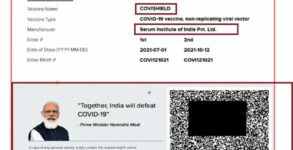How Indians Can Now Obtain Five-Year Multi-Entry Schengen Visa: Indian nationals can now obtain long-term, multi-entry Schengen visas valid for two years from the European Union (EU). This is a significant improvement over potentially shorter-validity visas previously offered.
he “cascade” visa regime was designed exclusively for Indians. The applicant must have obtained and lawfully used two Schengen visas within the previous three years to be eligible for the two-year visa.
After successfully utilizing the two-year visa, Indian travellers can expect to receive a five-year Schengen visa, provided their passports have enough remaining validity.
The Indian citizen will have the same travel rights as visa-free nationals within the Schengen area while holding a valid two-year or five-year visa. In other words, they do not need additional permits to travel within the member countries for short stays (typically up to 90 days in any 180-day period).
“The initial two-year visa is typically succeeded by a five-year visa, contingent upon the remaining validity of the passport. Throughout the duration of these visas, holders enjoy travel privileges equivalent to visa-exempt nationals,” the statement explained.
Explaining the ‘Cascade’ system:
Visas are progressively extended for frequent travelers under the system.
After successfully using a two-year visa, you can potentially qualify for a five-year visa.
The Schengen visa allows holders to travel freely within the Schengen area for up to 90 days within a 180-day period.
In spite of the fact that these visas are not restricted by purpose, they do not confer employment rights.
29 European countries make up the Schengen area, including 25 EU members: Belgium, Bulgaria, Croatia, the Czech Republic, Denmark, Germany, Estonia, Greece, Spain, France, Italy, Latvia, Lithuania, Luxembourg, Hungary, Malta, Netherlands, Austria, Poland, Portugal, Romania, Slovenia, Slovakia, Finland, and Sweden. In addition, Iceland, Liechtenstein, Norway, and Switzerland are included.
This decision comes in the context of strengthened relations under the EU-India Common Agenda on Migration and Mobility, which seeks comprehensive cooperation on migration policy between the EU and India, with facilitating people-to-people contacts being a key aspect due to the importance of India as a partner for the EU.
The European Commission adopted specific rules on issuing multiple-entry visas to Indian nationals on 18 April 2024, which are more favorable than the Visa Code rules currently in effect. As a result of this new visa “cascade” regime, Indians residing in India are able to obtain visas with multi-year validity with ease, if their passports are valid, if they apply for Schengen (short-stay) visas in India.
For frequent travelers, the five-year multiple-entry visa is beneficial.
Travelers can stay in European countries for 90 days within 180 days with this visa, up to 180 days per year, but not consecutively, for five years. In addition, holders of this visa are also able to travel to countries outside of the Schengen area, facilitating seamless travel to some destinations during the validity period. Indian citizens with Schengen visas, for example, can travel visa-free to over 37 countries outside of the Schengen area.
Also Read: Voter ID Card: Relationship column rule changed for Assam in conformity with other states


















